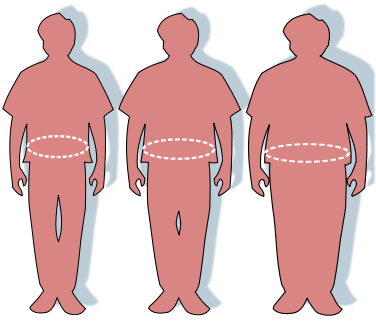 If you’re at all interested in weight loss, one thing you must know is your body mass index or BMI. The BMI is a calculation that takes your weight and height into consideration to determine if you’re average, over, or underweight.
If you’re at all interested in weight loss, one thing you must know is your body mass index or BMI. The BMI is a calculation that takes your weight and height into consideration to determine if you’re average, over, or underweight.
For most people, the higher your BMI, the more likely it is that you’re obese, and the more likely it is that you’ll develop serious health problems at some point like heart disease, heart attack, or stroke. Just for your personal reference, the basic BMI numbers you need to be aware of are as follows: below 18.5 is underweight, 18.5-24.9 is normal, 25-29.9 is overweight, and 30 and up is obese.
While the BMI is a good indicator as to whether or not you need to consider weight loss, it’s not the be all and end all sign. Your body shape also plays a major role in your health and what your weight actually means.
Some people may weigh more and fall into the overweight category but have hardly any fat. These people are often athletes and have large quantities of muscle, which add weight but isn’t detrimental to your health. A good way to determine if your extra weight is caused by muscle or fat is to undergo body fat testing by a body analyzer.
On the flip side, an elderly person may not weigh very much, but he may have more fat than is healthy. For the most part, the location of where you carry fat is the biggest indicator of your overall health. Extra belly fat puts you at risk for problems like high blood pressure, high cholesterol, diabetes, and more. A family history of these issues is also something you need to keep in mind and may necessitate weight loss.
You can measure your waist right now to see if you’re at an increased risk for these conditions. Simply measure your middle around the belly button. Regardless of your BMI, if your measurement is higher than 35 inches if you’re a woman or 40 inches if you’re a man, it’s likely you’re at an elevated risk.
Many people cite the BMI as the be all and end all of deciding if weight loss is necessary for you. However, it could yield inaccurate results if your body shape or muscle density differs from average.
Image credit: Wikipedia
